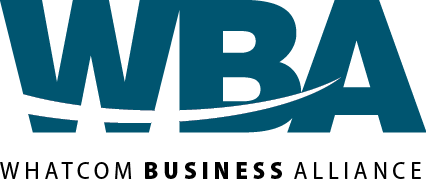Bellingham voters should reject these initiatives in November
In this upcoming election, Bellingham voters will be asked to consider four initiatives submitted by a coalition of Bellingham community activist groups — with no regard to the long-lasting negative effect on local businesses.
WBA’s Board of Directors is recommending a no-vote for all four initiatives because of the enormous adverse impact for City of Bellingham businesses, especially small businesses, employees, and our entire community.
INITIATIVE #1, focused on renters , asks voters to approve new regulations that would:
- Require landlords to provide written notice 90 days before terminating a rental agreement without cause or increasing rent by more than 5% in a rolling 12-month period;
- Require landlords to pay rental relocation assistance equal to three months of the current fair market rent in the Bellingham area when terminating a rental agreement without cause or increasing rent more than 8%, if requested by tenant, with limited exceptions;
- Allow private party civil enforcement actions.
INITIATIVE #2 bans advanced policing technologies , and would:
- Prohibit the City from acquiring or using facial recognition technology;
- Prohibit the City from contracting with a third party to use facial recognition technology on its behalf;
- Prohibit the use of predictive policing technology;
- Prohibit the retention of unlawfully acquired data;
- Prohibit the use of data, information, or evidence derived from the use of facial recognition technology or predictive policing technology in any legal proceeding;
- Allow private party civil enforcement actions.
“While well-intended, Bellingham voters should reject these two initiatives,” said Barbara Chase, executive director of the Whatcom Business Alliance. “Further regulating the housing market here will ultimately only drive up housing costs. And restricting the ability for police to use the latest technology only results in increased crime and greater danger to vulnerable populations. More regulations on business and fewer regulations on criminals are simply the wrong combination for any community.”
INITIATIVE #3 would result in a host of new regulations on Bellingham businesses related to collective bargaining , including the following:
- Prohibit any business receiving city funds from discouraging unionization among employees;
- Require recipients of city funds to segregate money;
- Allow the city to conduct investigations after administrative complaints;
- Establish vague “private enforcement actions”;
- Allow the city to terminate contracts for violations of the initiative.
This package, placed on the ballot by local activists represents an unprecedented attempt by local government to regulate the activities, operations, and even the speech of private business owners.
INITIATIVE #4, known as the “Fair Treatment of Hourly-Wage Employees and Gig Workers” would result in a host of new regulations on Bellingham businesses, including:
- Pay their employees a hazard pay supplement of $4 per hour during a declared State of Emergency;
- Provide good faith estimates of weekly hours to new employees upon hire;
- Provide work schedules to hourly-wage employees two weeks in advance;
- Provide advance notice of any schedule changes;
- Compensate employees for changing their work schedules without sufficient notice;
- Prohibit adverse actions by employers.
“Passing this initiative would give the City of Bellingham enormous authority over the day-to-day business operations of local employers,” said Barbara Chase, executive director of the Whatcom Business Alliance. “Placing oppressive requirements on employers to provide two weeks notice on scheduling in an era where state and local government shut down businesses without a moment’s notice is unfathomable. In the long run — and perhaps even in the short run — this initiative will only result in fewer opportunities for hourly workers as businesses leave Bellingham — or invest in technology, rather than employees.”
The post Bellingham voters should reject these initiatives in November appeared first on Whatcom Business Alliance.
